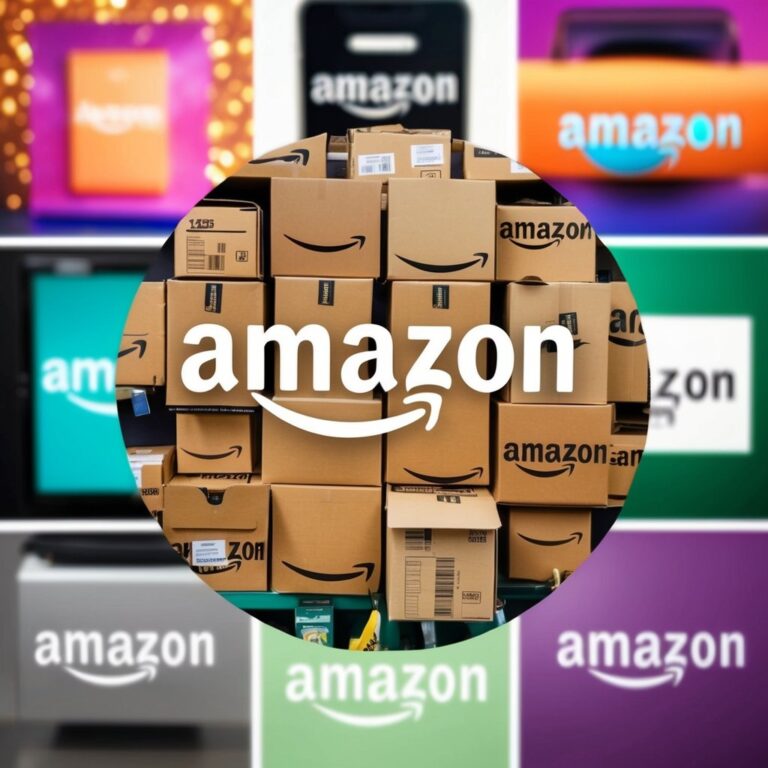Amazon DEI Evolution: From Bold Initiatives to Strategic Restructuring in the Food Industry
Amazon DEI Diversity, Equity, and Inclusion journey has been a rollercoaster, marked by ambitious commitments and recent recalibrations. As the e-commerce giant navigates a shifting legal, political, and economic landscape, its DEI strategies are evolving, particularly in its food operations like Whole Foods and Amazon Fresh. This 2025 guide explores Amazon’s DEI transformation, focusing on its impact on the food industry, from grocery retail to diverse supply chains and community engagement. Whether you’re a shopper, seller, or employee, this article offers a comprehensive look at what Amazon’s DEI changes mean for you, backed by expert insights and practical tips to stay informed and engaged. Let’s explore AMZ Updates what’s new and how you can make the most of it!
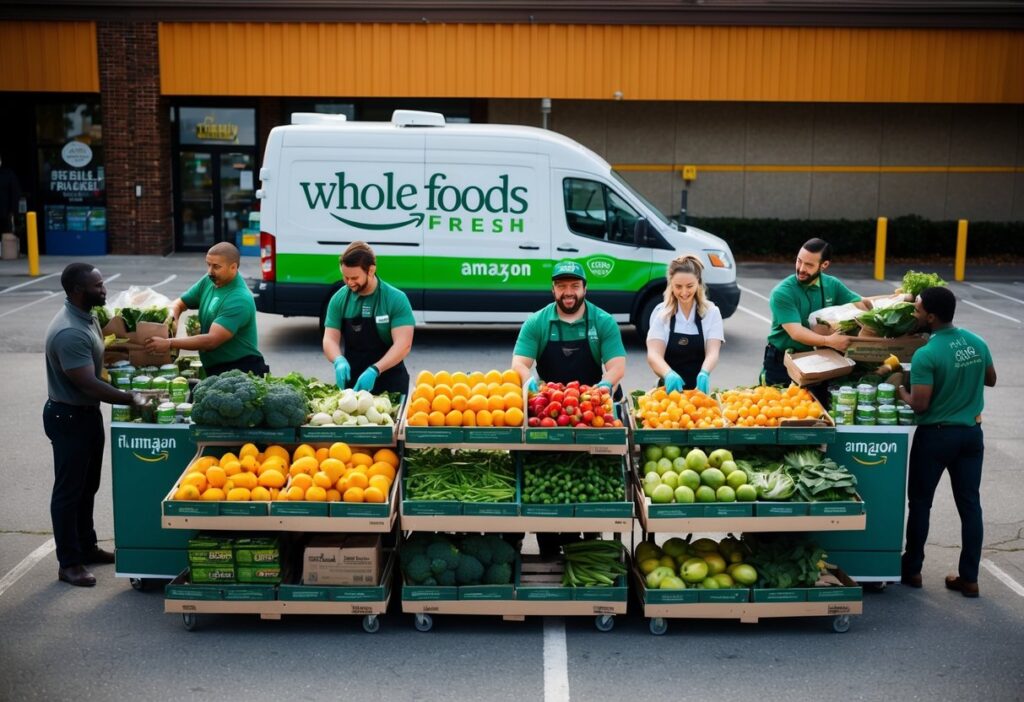
Understanding Amazon’s DEI Journey
Amazon’s DEI efforts began gaining traction after the 2020 George Floyd protests, which sparked a corporate push for inclusivity across industries. In the food sector, where Amazon operates through Whole Foods, Amazon Fresh, and grocery delivery, DEI has shaped hiring, supplier diversity, and customer experiences. However, 2024-2025 marked a pivot, with Amazon scaling back certain programs amid legal scrutiny and political pressures. This section traces the evolution, setting the stage for its food-specific implications.
The Bold Beginnings (2020-2023)
Post-2020, Amazon set aggressive DEI goals, as outlined by Senior VP Beth Galetti and reinforced by then-CEO Jeff Bezos. Key initiatives included:
- Leadership Diversity: Doubling Black directors and vice presidents in the U.S. and increasing women in tech roles by 30% year-over-year.
- Inclusive Hiring: Revising recruitment to eliminate bias and launching training to foster inclusion.
- Employee Resource Groups (ERGs): Supporting groups like the Black Employee Network and Women in Tech to advocate for underrepresented employees.
- Supplier Diversity: Partnering with minority-owned businesses, including food suppliers for Whole Foods and Amazon Fresh.
In the food industry, these efforts translated to diverse hiring in Whole Foods stores and fulfillment centers, ensuring staff reflected the communities they served. Amazon also expanded partnerships with Black- and women-owned food brands, boosting their visibility on its platform.
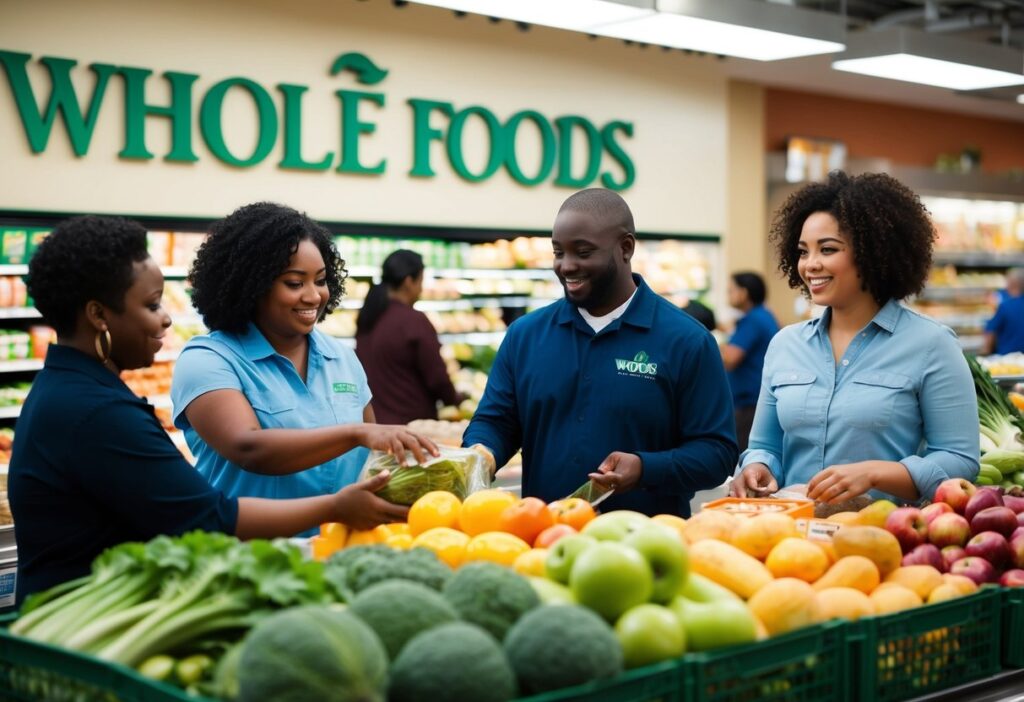
The Strategic Restructuring (2024-2025)
By late 2024, Amazon announced a shift, described by VP of Inclusive Experiences Candi Castleberry as “winding down outdated programs” to focus on “proven outcomes.” Key changes include:
- Eliminating Quotas: Removing explicit hiring targets for race or gender, citing legal risks post-2023 Supreme Court affirmative action ruling.
- Consolidating ERGs: Unifying employee groups under one umbrella, reducing funding and autonomy.
- Reduced DEI Roles: Dissolving certain DEI-focused positions, with efforts integrated into broader HR strategies.
- Annual Report Changes: Removing “inclusion and diversity” references from the 2025 annual report, signaling a quieter approach.
This restructuring aligns with actions by Meta, McDonald’s, and Walmart, reflecting a corporate trend to de-emphasize visible DEI programs amid conservative backlash and shareholder scrutiny. In the food sector, these changes affect Whole Foods’ workforce, Amazon Fresh’s supply chain, and partnerships with diverse food vendors.
DEI in Amazon’s Food Operations
Amazon’s food businesses—Whole Foods, Amazon Fresh, and grocery delivery—are critical to its retail dominance. DEI plays a unique role here, influencing who works in stores, which brands get shelf space, and how communities are served. Below, we explore how Amazon’s DEI evolution impacts these areas.
Whole Foods: A Case Study in DEI
Amazon’s 2017 acquisition of Whole Foods for $13.7 billion brought premium groceries into its portfolio, targeting higher-income, health-conscious consumers. DEI has been central to Whole Foods’ operations:
- Diverse Workforce: Whole Foods employs thousands in stores and distribution, with DEI shaping hiring to reflect local demographics. Pre-2024, Amazon prioritized hiring from underrepresented groups, particularly in urban markets like New York and Los Angeles.
- Community Engagement: Whole Foods’ community programs, like food drives and local supplier partnerships, align with DEI by supporting minority-owned businesses. For example, sourcing from Black-owned farms for organic produce.
- Customer Experience: A diverse staff ensures cultural competence, helping shoppers feel valued, especially in diverse neighborhoods.
However, the 2025 rollback raises concerns. Employees report fewer DEI trainings and reduced ERG funding, potentially weakening inclusivity in stores. Consumers who prioritize ethical brands may question Whole Foods’ commitment, risking loyalty, as 60% of shoppers choose brands based on societal values (Edelman Trust Barometer 2024).
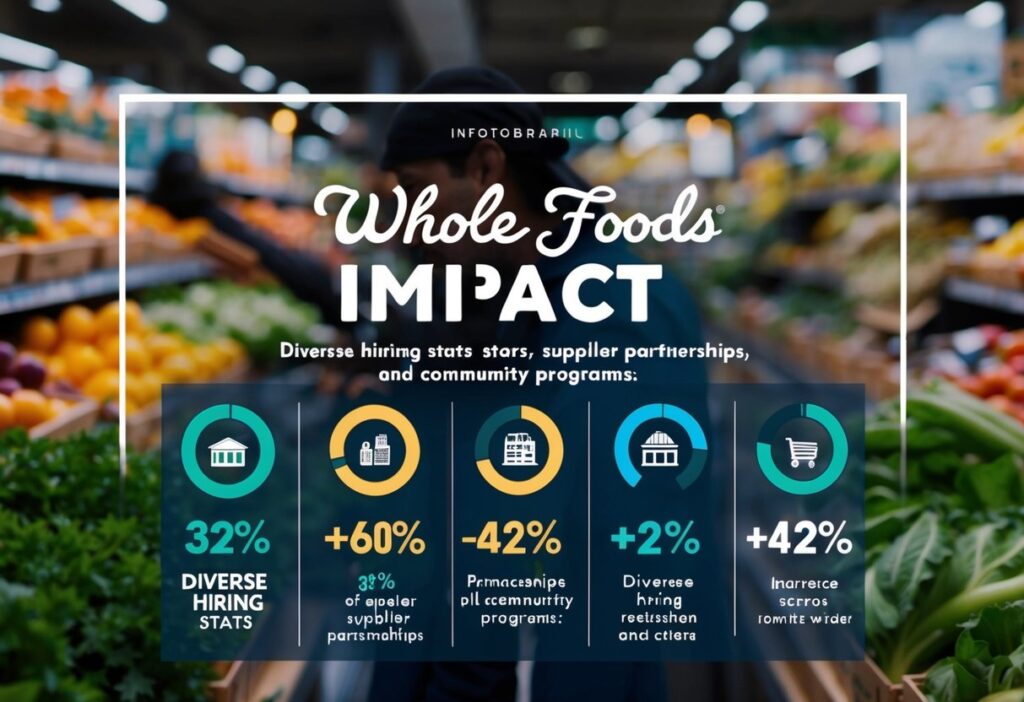
Amazon Fresh and Grocery Delivery
Amazon Fresh, launched to compete with traditional grocers, relies on diverse teams in fulfillment centers and delivery. DEI initiatives have supported:
- Hiring Equity: Recruiting from underserved communities for warehouse and driver roles, often in food deserts where access to groceries is limited.
- Supplier Diversity: Featuring minority-owned food brands, like Hispanic-owned tortilla makers or Asian-American snack companies, on Amazon’s grocery platform.
- Accessibility: Offering affordable groceries to diverse neighborhoods, supported by inclusive marketing that resonates with varied cultures.
The restructuring may limit these efforts. Reduced DEI roles could slow progress in hiring equity, and consolidated ERGs may struggle to advocate for food-specific needs, like culturally relevant products.
Food Supply Chain and Vendor Partnerships
Amazon’s food supply chain involves thousands of vendors, from small farms to large brands. DEI has historically encouraged partnerships with diverse suppliers, such as:
- Minority-Owned Brands: Promoting Black-, women-, or LGBTQ+-owned food companies, like a Black-owned hot sauce brand featured on Amazon’s grocery page.
- Sustainable Sourcing: Aligning with DEI through ethical sourcing, like supporting women-led coffee cooperatives.
The rollback may reduce funding for these partnerships, as Amazon shifts to “business-integrated” inclusion. Food vendors worry about losing visibility, especially small, diverse businesses reliant on Amazon’s platform.
Implications for Stakeholders
Amazon’s DEI evolution affects multiple stakeholders in the food industry. Here’s how:
For Shoppers
Consumers value brands that reflect their values. Amazon’s quieter DEI approach risks alienating shoppers who prioritize inclusivity, particularly in food, where ethical sourcing and community impact matter. For example, Whole Foods shoppers may switch to competitors like Trader Joe’s if they perceive a lack of commitment. To stay engaged:
- Research Brands: Check Amazon’s grocery pages for diverse-owned products and support them.
- Follow Updates: Visit amzupdates.com for news on Amazon’s food policies and DEI changes.
- Voice Opinions: Share feedback on social media or Amazon’s customer service to advocate for inclusivity.
For Employees
Food industry employees, from Whole Foods cashiers to Amazon Fresh drivers, face uncertainty. Reduced DEI programs could limit career growth for underrepresented groups, as mentorship and training dwindle. Employees can:
- Join ERGs: Participate in remaining affinity groups to advocate for food-specific DEI needs.
- Upskill: Use Amazon’s Career Choice program for training, despite DEI cuts.
- Petition Leadership: Support internal campaigns urging Amazon to maintain inclusive policies.
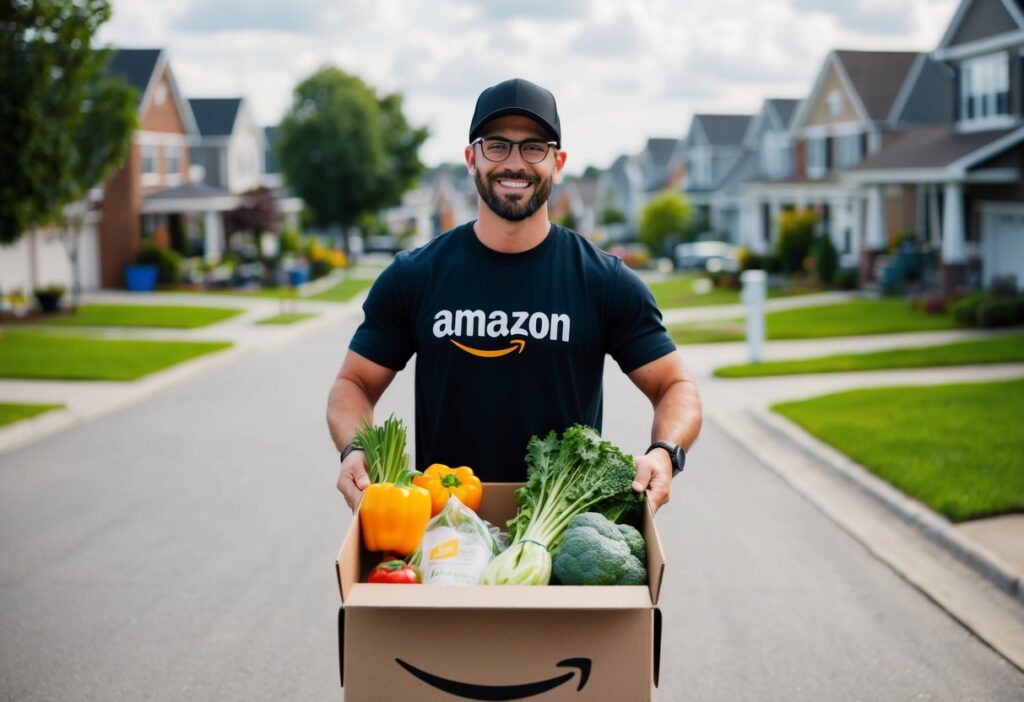
For Food Sellers
Sellers, especially minority-owned food brands, rely on Amazon’s platform for reach. The rollback may reduce promotional support, but opportunities remain:
- Optimize Listings: Use clear, inclusive branding to attract diverse shoppers.
- Leverage Advertising: Invest in Amazon DSP ads to maintain visibility, even with less DEI funding.
- Network: Partner with other diverse suppliers through Amazon’s seller forums.
Amazon’s Ongoing DEI Efforts in Food
Despite rollbacks, Amazon maintains some DEI efforts, particularly in food:
- Amazon Future Engineer: Provides STEM education to underserved communities, some of whom may enter food-related tech roles (e.g., supply chain analytics).
- Inclusive Marketing: Amazon’s grocery ads feature diverse families, aligning with cultural inclusion.
- Sustainability Ties: DEI intersects with sustainability, like sourcing from diverse, eco-friendly farms for Whole Foods.
AWS’s $30 million investment in diverse-led startups could also support food tech innovators, though not explicitly food-focused.
Challenges and Criticisms
The restructuring faces backlash:
- Employee Pushback: Internal petitions highlight fears of a less inclusive workplace, particularly in food retail where diversity is visible to customers.
- Consumer Risks: Brand reputation may suffer, as shoppers prioritize DEI (CTO Magazine).
- Legal and Political Pressures: The 2023 Supreme Court ruling and conservative activism drive Amazon’s caution, but some argue it overcorrects.
- Vague Commitments: Critics question whether “inclusive workplace policies” will deliver results, especially in food operations.
Tips for Navigating Amazon’s DEI Evolution
To thrive in this new landscape:
- Stay Informed: Follow amzupdates.com and Amazon’s About Amazon for DEI updates.
- Engage with ERGs: Employees and sellers should join unified ERGs to influence food-specific policies.
- Support Diverse Brands: Shoppers can prioritize minority-owned food products on Amazon.
- Advocate: Use X or Amazon’s feedback channels to voice support for DEI in food retail.
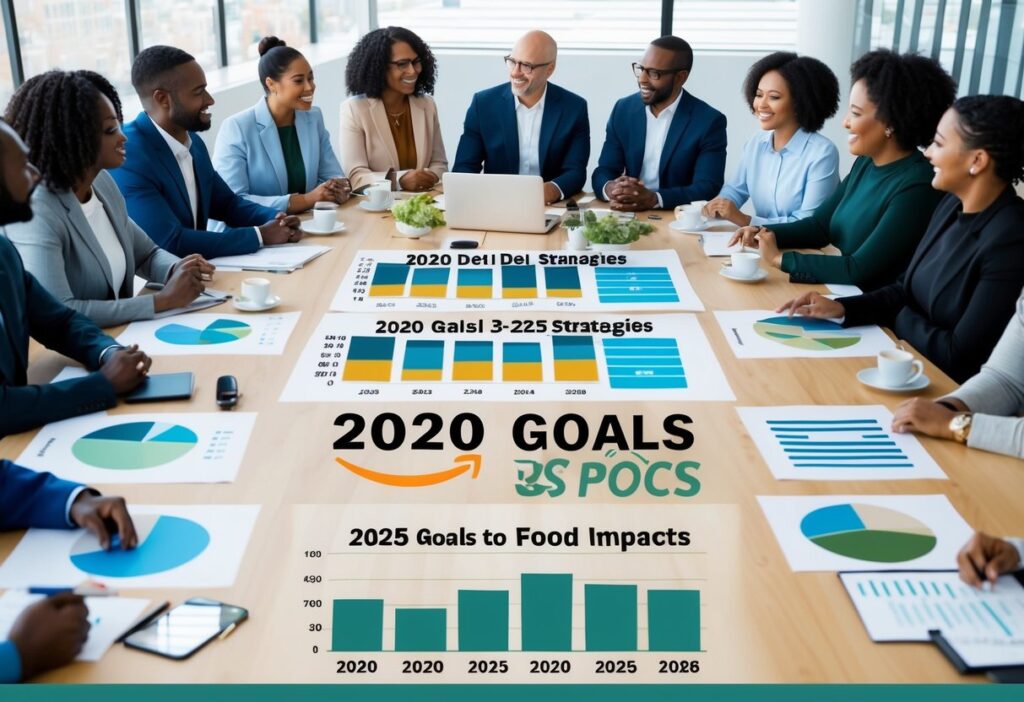
Frequently Asked Questions
Why did Amazon scale back DEI programs?
Amazon cited legal risks, shareholder pressure, and a focus on “proven outcomes,” aligning with a corporate trend post-2023 Supreme Court ruling.
How does this affect Whole Foods?
Reduced DEI training and ERG funding may weaken inclusivity, but Whole Foods maintains diverse hiring and supplier partnerships.
Can shoppers support DEI on Amazon?
Yes, buy from minority-owned food brands and share feedback advocating for inclusivity.
What’s next for Amazon’s DEI in food?
Amazon is shifting to integrated inclusion, but specifics are unclear. Monitor updates for clarity.
Conclusion
Amazon’s DEI evolution reflects a complex balance of ambition, pragmatism, and adaptation. While its bold 2020 initiatives transformed food operations like Whole Foods and Amazon Fresh, the 2025 restructuring prioritizes legal compliance and business integration. For shoppers, employees, and sellers, this shift brings challenges but also opportunities to advocate for inclusivity. By staying informed and engaged, you can shape Amazon’s food industry future. Visit amzupdates.com for the latest insights, and share your thoughts on DEI in the comments below!




